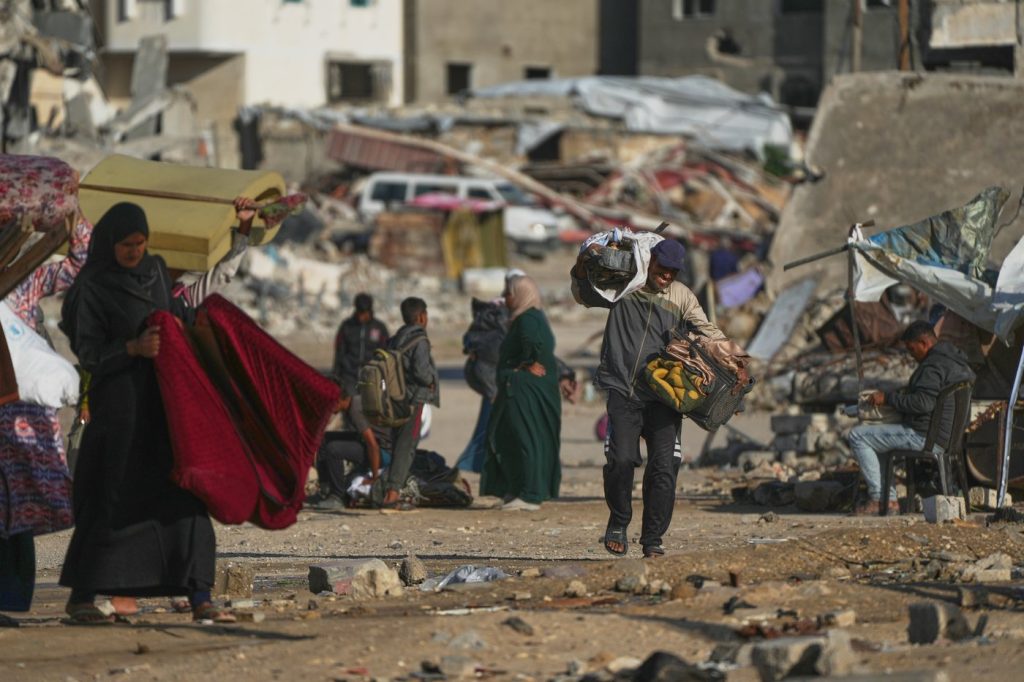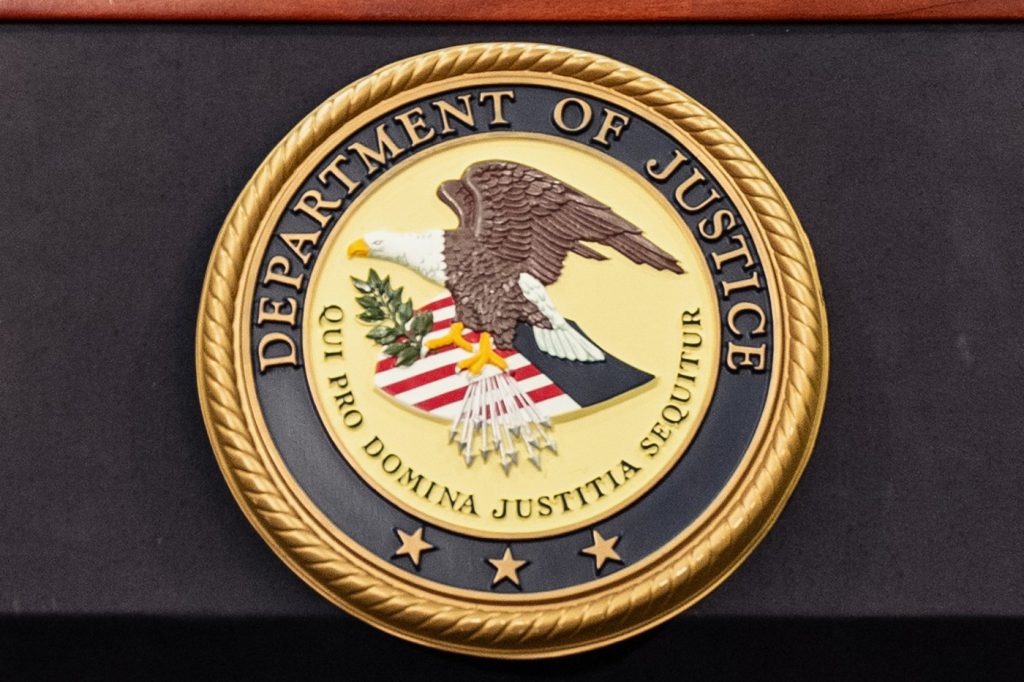UNITED NATIONS (AP) — The U.S. administration's proposal for regulating and stabilizing Gaza received significant backing at the United Nations on Monday, marking a vital development that offers international endorsement for American efforts aimed at leading the war-torn area to peace after two years of conflict.
The U.S. resolution, which was passed by the U.N. Security Council, endorses the establishment of an international stabilization force tasked with ensuring security in Gaza. It also approves a transitional authority under the supervision of President Donald Trump and outlines a potential roadmap for the establishment of an independent Palestinian state.
Trump highlighted the importance of this approval on social media, claiming, "This will go down as one of the biggest approvals in the history of the United Nations, will lead to further peace all over the world, and is a moment of true historic proportion!"
This resolution supports Trump's 20-point ceasefire plan, building on the fragile ceasefire that was brokered with the assistance of allied nations. This step is deemed crucial for defining Gaza’s future following the Israel-Hamas war, which resulted in significant destruction and the loss of tens of thousands of lives.
The proposed plan includes the formation of a transitional authority named the Board of Peace, which Trump would lead. Additionally, it grants a comprehensive mandate to the international stabilization force to oversee border security, maintain order, and ensure the demilitarization of the territory. The authorization for both the board and the force is set to expire at the end of 2027.
Countries in the Arab and Muslim world, interested in contributing troops to an international force, have indicated that U.N. authorization was essential for their involvement. Following the vote, Russia abstained alongside China on the 13-0 resolution, amid concerns that Moscow might use its veto power in the Security Council.
Hamas, however, opposed the resolution, stating that it fails to address the "political and humanitarian demands and rights of the Palestinian people."
U.S. Ambassador to the U.N. Mike Waltz expressed that the resolution signifies a considerable step toward creating a stable Gaza, fostering an environment that allows Israel to exist securely. He attributed the resolution's success to the cooperative discussions that led to the strengthening of language regarding Palestinian self-determination, spurred by pressures from Arab nations and the Palestinians.
Despite this, the proposal does not define a timeline or provide assurances for the creation of an independent Palestinian state. It merely suggests that such a state could become feasible following advancements in Gaza's reconstruction and reforms in the Palestinian Authority, which governs parts of the West Bank.
The United States amended the resolution to create a possible pathway for Palestinian self-determination, stating that "the conditions may finally be in place for a credible pathway to Palestinian self-determination and statehood." Additionally, the U.S. aims to initiate discussions between Israel and the Palestinians to establish a political framework for peaceful coexistence.
Israeli Prime Minister Benjamin Netanyahu maintains opposition to Palestinian statehood, reiterating this stance amid concerns from his hardline governance partners regarding the resolution's implications for Palestinian independence. Israel's U.N. Ambassador Danny Danon acknowledged Trump's leadership in promoting peace in the Middle East.
Algeria's U.N. Ambassador Amar Bendjama, representing Arab interests, thanked Trump for his role in facilitating the ceasefire but emphasized that genuine peace in the Middle East necessitates justice for the Palestinian people.
A significant factor in the resolution's passage was the backing from Arab nations and other Muslim countries, pivotal in achieving the ceasefire and likely contributors to the international force. The U.S. mission to the U.N. circulated a joint statement with Qatar, Egypt, UAE, Saudi Arabia, Indonesia, Pakistan, Jordan, and Turkey, advocating for the swift adoption of the U.S. proposal.
Russia's U.N. Ambassador Vassily Nebenzia acknowledged the support but signaled Moscow's abstention due to a lack of provisions involving the Security Council and insufficient emphasis on Palestinian statehood.
This vote strengthens hopes for maintaining Gaza's fragile ceasefire, which was established after Hamas's surprise offensive on southern Israel on October 7, 2023, resulting in approximately 1,200 deaths. The subsequent Israeli military offensive has resulted in the deaths of over 69,000 Palestinians, according to the Gaza health ministry, which does not differentiate between combatants and civilians but asserts that the majority are women and children.
Regarding the U.S. proposal's specifics, Trump mentioned that the members of the Board of Peace would be announced in the coming weeks, accompanied by "many more exciting announcements." The resolution stipulates that the stabilization force will facilitate "the demilitarization of the Gaza Strip" and "the permanent decommissioning of weapons from non-state armed groups." A crucial concern remains about how to disarm Hamas, with the group arguing that giving the force a role in disarmament "strips it of its neutrality" and complicates its status in the conflict.
Ultimately, the resolution authorizes the stabilization force to employ "all necessary measures to carry out its mandate," under international law guidelines, which permits military force use. The resolution stipulates that the international troops will help secure border areas in coordination with a Palestinian police force that they have trained and vetted, working together with regional countries to ensure the effective provision of humanitarian aid. As control is established, it is indicated that Israeli forces will withdraw from Gaza based on agreed standards, milestones, and timeframes linked to the demilitarization efforts, as approved by the stabilization force and Israeli forces, alongside U.S. oversight.












